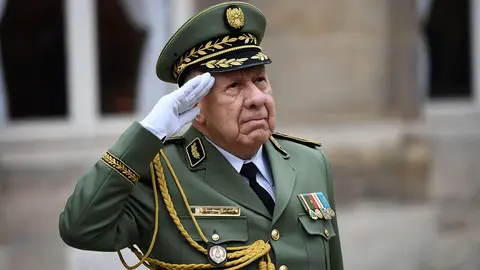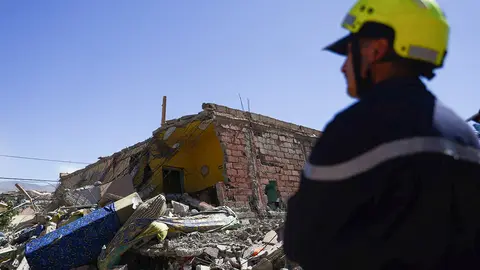Tebboune duped by his advisers at the UN?

Abdelmadjid Tebboune's thirty-minute speech was dominated by the figure of 1.3 billion. This figure refers to the "daily" production of desalinated water between now and the end of 2024. An enormity that provoked hilarity, astonishment and indignation among many Algerians, who felt ashamed that their country was so under-represented at this major world event.
While the Algerian media - print, audiovisual and even electronic - remained silent on this scandalous statement, all over the social networks there was no shortage of mockery of the ignorance of the president and his advisors, but also of "pedantry, fatuity, petulance and above all mockery", as one informed observer put it.
Did the Algerian president not realise the magnitude of the 1.3 billion daily production figure? "Did he not know that if you divide this volume by the 40 million inhabitants of Algeria, you get 32.5 m3 per inhabitant per day (including babies)? Knowing that a family of four in Europe consumes 150 m3 per year," says one expert. "This will dry up the Mediterranean in a few months", adds another with irony. This is unprecedented in the history of the United Nations. For a head of state to make such an announcement, puffing out his chest and thinking he can impress the world with what he thinks is an achievement, is simply mind-boggling.
A few months ago, Tebboune announced the same figure in a meeting with representatives of the Algerian press. In the trailer that scrolled across the bottom of the TV screens, what was thought to be a blunder was quickly corrected by deleting the word "daily". But it seems the president has not been informed. For he is repeating the same thing, but even more seriously, on an international scale. This raises some very legitimate questions.
Could it be that the Algerian president, who is so ignorant that he does not realise the magnitude of the figures he is putting forward? Could he be so careless as not to check or have his advisors check a speech of such importance? Could his advisors have been manipulated to trick him into making the speech of his life? Could his advisors be so mediocre as to repeat an ineptitude that was pointed out and corrected not so long ago?
These questions do not only refer to this nonsense about seawater desalination. The entire discourse is riddled with contradictions and inconsistencies that reveal Algeria's poor position on the international stage since the arrival of the Tebboune-Chengriha duo at the country's helm.
Among the inconsistencies observed in the Algerian president's speech was the absence of any reference to the armed conflict in Ukraine. While his speech was meant to be appeasing and to convey signs of peace, he concealed the suffering of the Ukrainian people, victims of Russian aggression that has left their country in ruins and millions of its inhabitants in exile.
In his speech, Tebboune claimed to be the spokesman for Arabs and Africans. However, since his inauguration as Algerian head of state, his country has been at odds with many countries. In addition to tensions with neighbouring Morocco, which have even led to the severance of diplomatic relations and the closure of airspace, Algeria is at odds with its immediate neighbours, France and Spain, and with its Arab 'brothers' the United Arab Emirates and Saudi Arabia. Things are no better on the African side either. Nigerians reject his mediation in their internal crisis, and ECOWAS member states reject his interference in the same crisis.
Tebboune will also do an injustice to history and to fraternal Algerian-Moroccan relations by being the only speaker to mention the partition of the territory of this king, who from this same UN rostrum in 1957 advocated Algeria's independence and sovereignty.
Abdelmadjid Tebboune arrived in New York to mark Algeria's presence at the 78th session of the UN General Assembly and take it home as an achievement of his diplomacy, but found himself in the middle of a scandal that revealed what many observers thought of him. He had neither the makings nor the stature of a head of state. What was regularly confirmed in his public appearances in Algeria has now been confirmed on the international stage. This is enough for those who do not want him to be re-elected for a second term at the head of the country to convince the few who are reluctant to accept his mediocrity to better dominate him.
Before trying to carve himself a better image abroad, Tebboune would have done better to invest in his country by reconciling with a people who barely elected him and whose children he has imprisoned by the hundreds and forced into exile by the thousands. In short, a year away from the end of his mandate, imposed on the Algerian people on 12 December 2019 by the late Ahmed Gaïd Salah, head of the Algerian army, Abdelmadjid Tebboune has written the darkest pages of independent Algeria.











